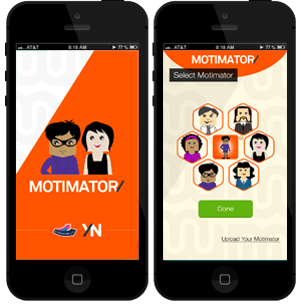Expert chat: Getting a job
 Martijn from Hilton answers your questions about how to write a killer CV, interview like a pro and how to beat the 'need experience to get experience' trap. Read on to see what he had to say.
Martijn from Hilton answers your questions about how to write a killer CV, interview like a pro and how to beat the 'need experience to get experience' trap. Read on to see what he had to say.
Ali: What's a good way to start a CV?
Martijn: Always be convincing. Start with your personal details, just the basics: name, e-mail - you want to make sure they can contact you! Then leave a telephone number. If you already have a job don't leave your current employer's number there, but your mobile number instead. A personal statement is always good. Describe yourself in the best way and be honest. Employers will also look for power statements. A power statement is a short statement where you're able to 'sell' yourself. Here are some general tips on CV writing, which I believe work well: 1. Make sure your CV has a continuous flow. 2. Write your most recent work experience at the top. 3. When you have had a gap year or have been without employment for a while there, be prepared to defend this in an interview. 4. Spelling! So many people make the most basic spelling mistakes. A good idea is to get your CV checked by a friend, parents, etc. Word spell check works too!
James: You could also have a read of our article about writing CVs or search for 'CV' on The Mix.
Elisa: I've never had a job (which sounds really bad) but I'd like to get one. I've tried for a few months but they've all said I need experience. How do I get this experience?
Martijn: Great question! First of all, it's not at all bad that you haven't had a job. The fact that you want one and really want to go for it is half the battle. If you're struggling to find a job, you could potentially look at apprenticeships. There has been a massive increase in these around the country and in most cases they will pay you. Maybe initially start looking at some larger organisations, but certainly don't exclude some of the smaller ones.
Alex: That sucks Elisa! It's like you need experience for a job, but you need a job for experience, it's confusing.
Elisa: Yeah exactly Alex its so annoying. How are we expected to get experience when no one gives us the opportunity to get it?!
Alex: What kind of jobs are you looking for Elisa?
Elisa: Any. I'm at college full time so wouldn't be able to have loads of hours
Alex: A lot of schools set it so when you're in year 10, you do two weeks work experience. Did you ever do that?
Elisa: Yeah I did it as part of my health and social course in a nursery.
James: That's great Elisa! Perhaps you could use that to demonstrate various skills on your CV?
Martijn: Sometimes volunteering can get you a foot in the door too. Another thing that has worked for me in the past to get into an industry is even trying to go to a local event (if these are available in your area) about the industry which you are interested in. Think of job fairs on hospitality, retail, finance, etc.
Alex: I've found that a lot of the time you don't need experience to do cafe work/fast food work. Is that something you'd consider? Just to get yourself some experience and money
Martijn: Indeed Alex. That's exactly what I mean, and let's not forget, some of these fast food companies have some of the most amazing development courses in place and are praised for their investment in good team members. This means that you can move up if you show the passion. This might in the short term be difficult as you might not feel real passion for the job, but never go into a job with thinking 'its just a job'.
James: We've got an article on part-time jobs that might have some useful info Elisa. And there's another one on work for under 18s, which might also be worth a read.
Ronak: I'm a first year student at University, but I want to look for a job alongside my course. Quite a few people are hiring for the Christmas season, and I'm clueless as to what part of my CV is actually stopping me from getting into a retail field. I have my Maths and English grades, etc.
Martijn: Are you just looking at retail? Maybe consider broadening your search initially.
Alex: I know it's not ideal Ronak, but have you thought about starting from the bottom so to say? Fast food restaurants, things like that? I know people have crap opinions of them but honestly they're not that bad to work in. Maybe a not so great job so you do have a bit of experience with you to help boost your CV.
Martijn: Where does it seem to go wrong for you Ronak? Do you get offered any interviews or is the problem really at the CV?
Ronak: I don't get offered interviews, clearly not 'out there' enough! I guess it's the CV?
Martijn: Your CV has to stand out from the others. Be very specific. Keep it short and simple!
James: Thought I'd throw in a link to our article on Christmas jobs too - it's got some advice about how/where to apply.
Alex: How do you prepare for an interview? Because I've always been pretty crap at interviews, I end up fidgeting and playing with my hands or sleeves or something because of my anxiety.
Martijn: First of all make sure you know what's in your CV. Be able to explain the whole flow. Practicing this in advance will give you confidence going into the interview. Important as well is to be able to explain any gaps in your CV. Ensuring that you look smart is also important. Prepare a list of questions that you can expect and practice answering them. These will generally be focused on who you are as a person. It's also important to be able to describe yourself in 1 or two sentences. Name your strengths. Don't be shy to know in advance what a development need might be. As long as you are aware of it and addressing it at present employers will find this a good and honest approach. But try not to worry too much. It might take 10-20 interviews in some cases to start feeling more comfortable with it.
James: You might like to have a browse of our resources on interviews too.
Martijn: Thanks for your questions everyone. Remember many people have the same issues getting a job. Finding the right CV and interview techniques takes time, so it's perfectly normal to find it difficult.
Next Steps
- Chat about this subject on our Discussion Boards.
Updated on 29-Sep-2015
No featured article














